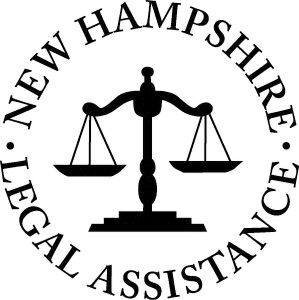Filing a Housing Discrimination Complaint: How It Works
The State of New Hampshire and the federal government have laws in place to protect people from housing discrimination based on race, color, national origin, religion, sex, family status, age, marital status, sexual orientation, gender identity, or disability. If you have been trying to buy or rent a home or apartment and you believe you may have been discriminated against based on one of these factors, you can file a fair housing complaint.
What are some types of housing discrimination?
There are a wide range of actions that are considered housing discrimination under the law. Fair housing laws cover actions related to the rental of housing, but also the sale of housing, home mortgages and appraisals, home insurance, and making a housing unit accessible.
Among other things, housing discrimination could include:
Steering someone to a specific neighborhood or housing unit.
Setting different terms for rental.
Lying about the availability of housing or certain units.
Who can file a complaint? Are there exempt properties?
Anyone who believes they have been discriminated against can file a complaint; however, there are some properties that are exempt from fair housing laws. These include:
Owner-occupied buildings with four or fewer units.
Housing operated by religious organizations that limit occupancy to members of the same religion (unless membership in the religion is limited to people of a certain race, color, or national origin).
A single-family house sold or rented by an owner who does not own more than three such houses at any one time. Although, there situations where this exemption would not apply, such as if the home is rented using a real estate agent or broker.
Filing a Complaint
There are several ways you can file a housing discrimination complaint. You can contact the U.S. Department of Housing and Urban Development (HUD) directly. You can file a complaint online, call a toll-free number, or print out a form and send it in. You can also write a letter to the HUD Region 1 Office that includes:
Your name and address.
The name and address of the person your complaint is about.
The address of the house or apartment you were trying to rent or buy.
The date when this incident occurred.
A short description of what happened.
You also could file a complaint with the New Hampshire Commission for Human Rights.
If you would like help filing a complaint or would like to speak with us about the facts of your case, contact the NHLA Fair Housing Project to see if we would be able to represent you. Consulting with us will help you understand if what happened to you violates the Fair Housing Act or NH’s Law Against Discrimination before you make an official complaint.
To contact the Fair Housing Project, call 1-800-921-1115. TTY access through Relay NH: 1-800-735-2964 or 7-1-1. We will provide you with a qualified interpreter if you have a limited ability to speak or understand English.
Once the complaint is filed with HUD, it will determine if your complaint is covered by the Fair Housing Act or other laws HUD enforces. If it does, then it will send a notification letter to you and the parties who discriminated against you, known as the respondents. An investigator will be assigned to your case and will contact you about your allegations. HUD will also interview the respondents, identify and interview potential witnesses, review documents, and gather other information. At the same time as it is investigating the case, HUD will conciliate the case, or help negotiate a possible agreement between you and the respondent.
If an agreement is not possible, HUD will continue the investigation to determine if there is reasonable cause to believe a violation of the Fair Housing Act occurred. If it does not, you are still able to pursue your case in federal court.
If HUD does find reasonable cause, it will issue a charge of discrimination. You or the respondents may choose to have the case heard in federal court or heard by an administrative law judge at no cost to you.
You do not need to go to HUD first. Even if you do not file a complaint with HUD, you can file a case in federal or state court if you believe you’ve been a victim of housing discrimination.
If the Case Is Found in Your Favor
If the case is found in your favor, you are entitled to relief. This could include things like being able to rent the apartment you originally wanted, getting an accommodation or modification for a disability, or payment for out-of-pocket expenses and emotional distress. The respondent also could be required to pay a fine or attend training on fair housing laws and policies. Your case not only could help you, but could prevent others from facing discrimination.
If you would like to file a Fair Housing complaint, contact the NHLA Fair Housing Project at 1-800-921-1115.

